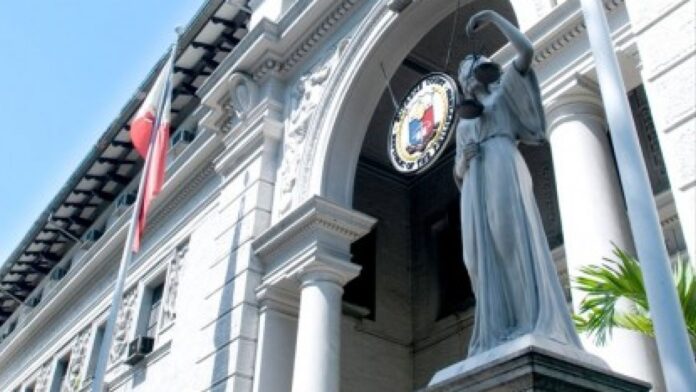The Supreme Court (SC) has affirmed a Makati court ruling convicting a banker liable for violations of laws on restrictions of banks’ exposure to directors, officers, stockholders, and their related interests (DOSRI) loans.
In its 21-page resolution uploaded online on March 11, the SC’s Third Division denied the petition for review filed by Jose Apolinario Jr. and affirmed the Court of Appeals (CA)’s 2018 decision on the case.
The CA had upheld the 2012 joint resolution of the Makati regional trial court (RTC) Branch 149 convicting Apolinario of violating the banking law and ordered him to pay a total fine of PHP300,000 involving two DOSRI loans amounting to PHP27 million granted by the Unitrust Development Bank (UDB) in 2001 and of which PHP14 million was actually released by the bank.
After the loans were released and on the same day, the Bangko Sentral ng Pilipinas (BSP) Department of Thrift Banks and Non-Bank Financial Institutions informed the bank’s officers including its president Apolinario that the loans violated regulatory laws.
Under banking laws, for a DOSRI loan to be valid, it is necessary that the written approval of majority of the bank’s directors be entered into the bank’s records and a copy of the entry must be transmitted to the appropriate supervising and examining department of BSP.
In UDB’s case, the BSP discovered that the loans did not contain the necessary supporting documents such as loan applications, disclosure statements, and both loans were secured only by shares in UDB owned by the borrower, Winefredo T. Capilitan, a director and corporate secretary of the bank at that time.
Capilitan obtained a personal loan of PHP1 million and a second loan of PHP27 million in his capacity as president of G. Cosmos Phils. out of which some PHP13 million was released.
On January 2002, the BSP suspended the bank’s operations, placed it under receivership with the Philippine Deposit Insurance Corporation (PDIC) that was directed to take over.
Apolinario, for his part, did not deny that the loans were not reported to the BSP but claimed that they could not have met this requirement because of the BSP and Philippine Deposit Insurance Company’s (PDIC)’s take over of the bank which he claimed effectively dissolved the bank’s operations, making it impossible for them to report the loans to BSP.
They added that since a BSP examiner was assigned at Unitrust from October 2001 until January 2002, the BSP should have been aware of the loan.
Ruling otherwise, the court said that while the BSP examiner was assigned to Unitrust, the latter’s job was to monitor the transfer of ownership and that the examiner’s presence at Unitrust alone cannot equate to his knowledge of the circumstances of the loans.
Even if the BSP examiner had acquired information regarding the loans, the bank “still had the duty to comply with the reportorial requirements of the law,” the SC said. (PNA)


